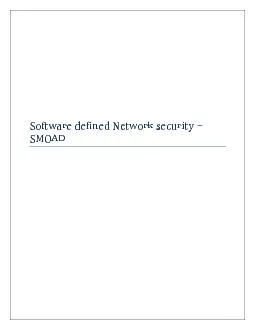PPT-As defined in the Generally Accepted Privacy Principles, “privacy” refers to the
Author : pamella-moone | Published Date : 2018-11-03
rights and obligations of individuals and organizations with respect to the collection use retention disclosure and destruction of personal information This pertains
Presentation Embed Code
Download Presentation
Download Presentation The PPT/PDF document "As defined in the Generally Accepted Pri..." is the property of its rightful owner. Permission is granted to download and print the materials on this website for personal, non-commercial use only, and to display it on your personal computer provided you do not modify the materials and that you retain all copyright notices contained in the materials. By downloading content from our website, you accept the terms of this agreement.
As defined in the Generally Accepted Privacy Principles, “privacy” refers to the: Transcript
Download Rules Of Document
"As defined in the Generally Accepted Privacy Principles, “privacy” refers to the"The content belongs to its owner. You may download and print it for personal use, without modification, and keep all copyright notices. By downloading, you agree to these terms.
Related Documents













![[EBOOK] - Wiley GAAP 2021: Interpretation and Application of Generally Accepted Accounting](https://thumbs.docslides.com/902540/ebook-wiley-gaap-2021-interpretation-and-application-of-generally-accepted-accounting-principles-wiley-regulatory-reporting.jpg)
